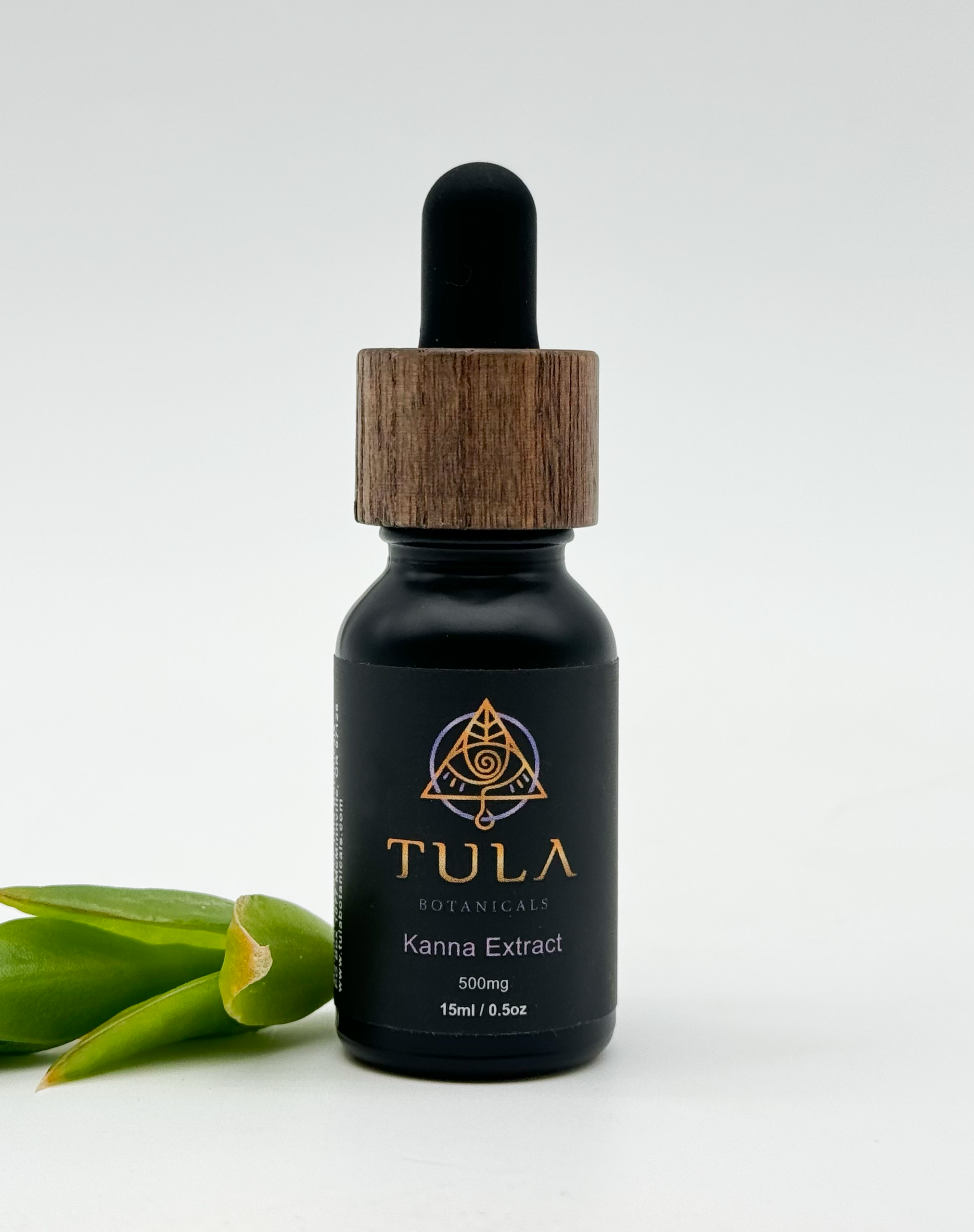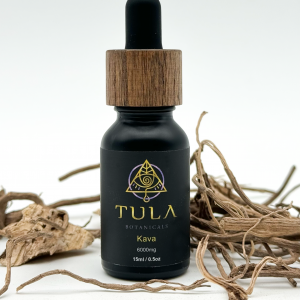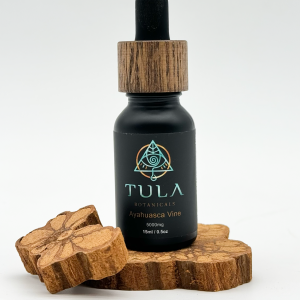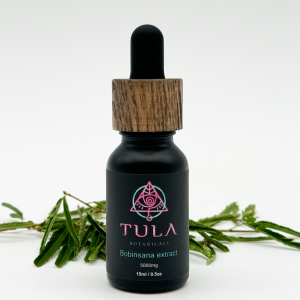Sceletium tortuosum: Description, Historical Use, Current Research, and Effects
Scientific Overview:
- Scientific Name: Sceletium tortuosum
- Common Names: Kanna, Channa, or Kougoed
- Family: Aizoaceae
- Genus: Sceletium
- Species: tortuosum
Sceletium tortuosum is a succulent plant native to southern Africa, particularly the semi-arid regions of South Africa, Namibia, and Zimbabwe. It has gained attention for its psychoactive properties, which have led to its traditional use in indigenous practices and modern interest in its potential for enhancing mood, cognition, and overall mental well-being.
Historical Use:
Sceletium tortuosum has a long history of use among indigenous groups in southern Africa, notably the Khoikhoi and San peoples. These communities have utilized the plant for its psychoactive properties for centuries, and it plays a prominent role in their cultural practices. The plant is often referred to as “Kanna” or “Kougoed,” which means “that which is chewed,” reflecting the traditional method of consumption.
The indigenous peoples would harvest the plant, often chewing the dried stems and leaves or preparing it as a paste. Sceletium tortuosum was used to relieve various ailments, including:
- Mood disorders: It was traditionally used as a mood enhancer to relieve feelings of sadness, anxiety, or melancholy.
- Stress and anxiety: Indigenous peoples used the plant to calm nerves, reduce anxiety, and cope with social stress.
- Cognitive enhancement: It was also used to increase mental clarity and improve focus.
- Social purposes: Sceletium tortuosum played a role in facilitating social interactions, reducing social anxiety, and enhancing communication in group settings.
- Hunger suppression: It was occasionally used to reduce appetite during periods of food scarcity, which was common in the harsh, arid conditions of the region.
The plant was typically consumed in small doses, with people chewing the dried plant material, mixing it with water, or even smoking it, though smoking is not as common in contemporary use.
Current Research and Use:
In recent decades, Sceletium tortuosum has garnered significant attention from researchers and the herbal supplement industry due to its potential therapeutic effects. Modern studies focus on the chemical composition of the plant and its psychoactive properties, particularly its mood-enhancing and cognitive effects. Sceletium tortuosum is now available in various forms, including capsules, powders, tinctures, and extracts, and is used as a natural supplement for anxiety, depression, and cognitive enhancement.
Chemical Composition:
The active compounds in Sceletium tortuosum are primarily alkaloids, which contribute to its psychoactive effects. The most notable alkaloids found in the plant include:
- Mesembrine: This alkaloid is believed to be the primary compound responsible for Sceletium tortuosum‘s mood-lifting properties. It works by inhibiting the reuptake of serotonin in the brain, much like selective serotonin reuptake inhibitors (SSRIs), leading to mood enhancement and reduced anxiety.
- Mesembrenone, Mesembrenol, and Tortuosamine: These compounds also contribute to the plant’s anxiolytic (anxiety-reducing), stimulant, and cognitive-enhancing effects.
Researchers have shown that the combination of these alkaloids may help improve cognitive function, reduce stress and anxiety, and enhance overall emotional well-being. Current studies are investigating the potential of Sceletium tortuosum as a treatment for:
- Anxiety disorders
- Mild to moderate depression
- Cognitive impairment
- Stress management
It is important to note that while some studies suggest the plant’s positive effects, research into Sceletium tortuosum is still ongoing, and much of the available evidence comes from small-scale studies or anecdotal reports.
Effects of Sceletium tortuosum:
The primary effects of Sceletium tortuosum are related to its impact on mood, stress, and cognition. These effects vary depending on the dosage, the method of consumption, and the individual’s response to the plant. The plant is generally considered safe when consumed in moderate amounts, but some side effects may occur if taken excessively.
1. Mood Enhancement:
- Euphoric and uplifting: Sceletium tortuosum is known for its mood-lifting effects. It has been traditionally used as a mild antidepressant, and current research suggests it may act similarly to SSRIs by increasing serotonin levels in the brain. Many users report feeling more content, happy, and at ease.
- Alleviation of mild depression: Some clinical studies indicate that Sceletium tortuosum may have potential as a treatment for mild to moderate depression, particularly when used as part of a broader wellness strategy that includes diet, exercise, and therapy.
2. Anxiety Reduction:
- Anxiolytic effects: The plant’s calming effects are well-documented. It is commonly used to reduce anxiety, tension, and stress. In particular, the compounds in Sceletium tortuosum may act to alleviate symptoms of generalized anxiety disorder (GAD) and social anxiety. Many users report a sense of calm and tranquility, with reduced feelings of nervousness or unease.
3. Cognitive Enhancement:
- Improved focus and clarity: Sceletium tortuosum is sometimes used as a cognitive enhancer or nootropic. The plant is believed to help improve mental clarity, focus, and concentration. Some users report heightened alertness and mental sharpness, making it popular among students and professionals.
- Memory enhancement: In some cases, users have noted improved memory retention and recall, though more research is needed to support these claims.
4. Stimulant Effects:
- Mild stimulant: In addition to its calming and mood-enhancing effects, Sceletium tortuosum can also serve as a mild stimulant. Some people report increased energy levels, motivation, and a sense of mental vitality after consuming the plant.
5. Social and Emotional Effects:
- Sociability and communication: Sceletium tortuosum has historically been used to enhance sociability, reduce social anxiety, and encourage positive interactions in group settings. Modern users also find that it can help foster a sense of connection and openness during social engagements.
Safety and Side Effects:
While generally considered safe, Sceletium tortuosum can cause side effects in some individuals, especially when taken in large doses or combined with other medications. Potential side effects include:
- Mild euphoria: Some users may experience a sense of heightened well-being or euphoria, which can be pleasant but may be disorienting for others.
- Headaches: A common side effect for some users, especially when the plant is taken in excess.
- Nausea and dizziness: Some individuals may feel mildly nauseated or dizzy after using Sceletium tortuosum.
- Insomnia: As a mild stimulant, taking Sceletium tortuosum too late in the day may interfere with sleep.
There is also the potential for interactions with other medications, especially those that affect serotonin levels. Combining Sceletium tortuosum with SSRIs, for instance, could increase the risk of serotonin syndrome, a potentially dangerous condition resulting from excessive serotonin levels in the brain. It is always recommended to consult a healthcare professional before using Sceletium tortuosum alongside other medications.
Conclusion:
Sceletium tortuosum is a plant with a rich history of use among indigenous cultures in southern Africa, particularly for its mood-lifting, anxiolytic, and cognitive-enhancing properties. While modern research is still in its early stages, the plant has shown promise as a natural alternative for managing anxiety, depression, and cognitive function. The active compounds, particularly mesembrine, contribute to its therapeutic effects, which include mood enhancement, relaxation, and mild stimulation.
However, more comprehensive studies are needed to fully understand its mechanisms and establish its safety and efficacy in treating various mental health conditions. Despite its potential benefits, Sceletium tortuosum should be used with caution, particularly in individuals taking medications or with underlying health conditions.



